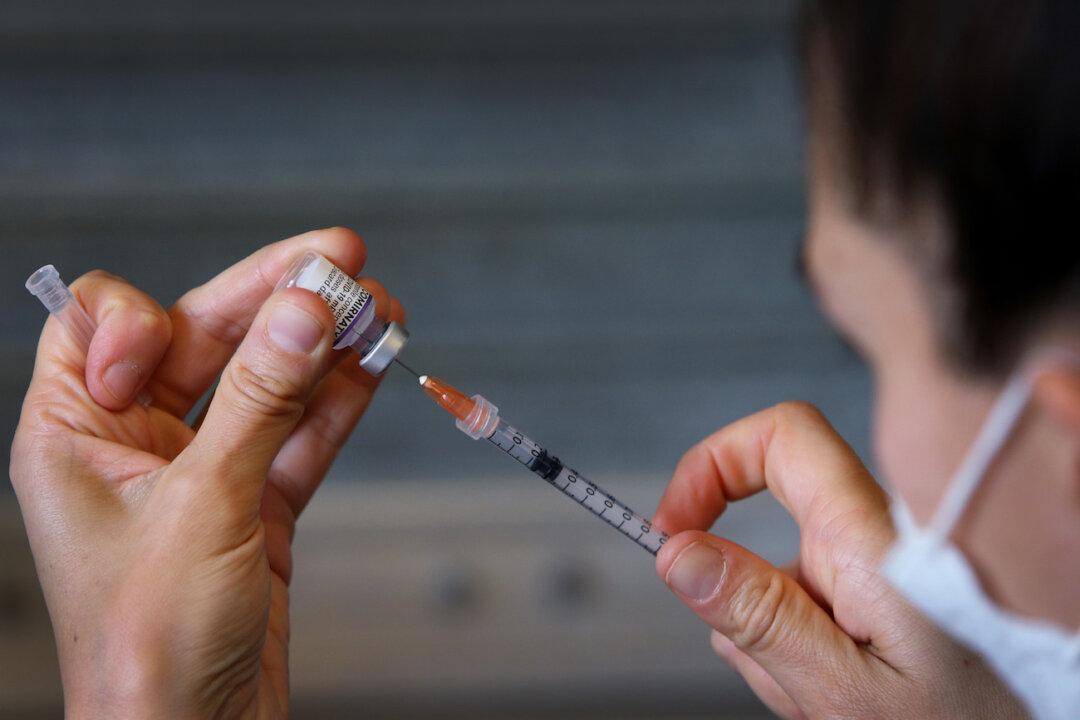The protection afforded against the Omicron coronavirus variant fades quickly after a second and third dose of Pfizer–BioNtech’s COVID-19 vaccine, according to a peer-reviewed study published in the JAMA Network.
A Danish study published in the JAMA Network on May 13 found that there was a rapid decline in Omicron-specific serum neutralizing antibodies only a few weeks after the administration of the second and third doses of the vaccine.





